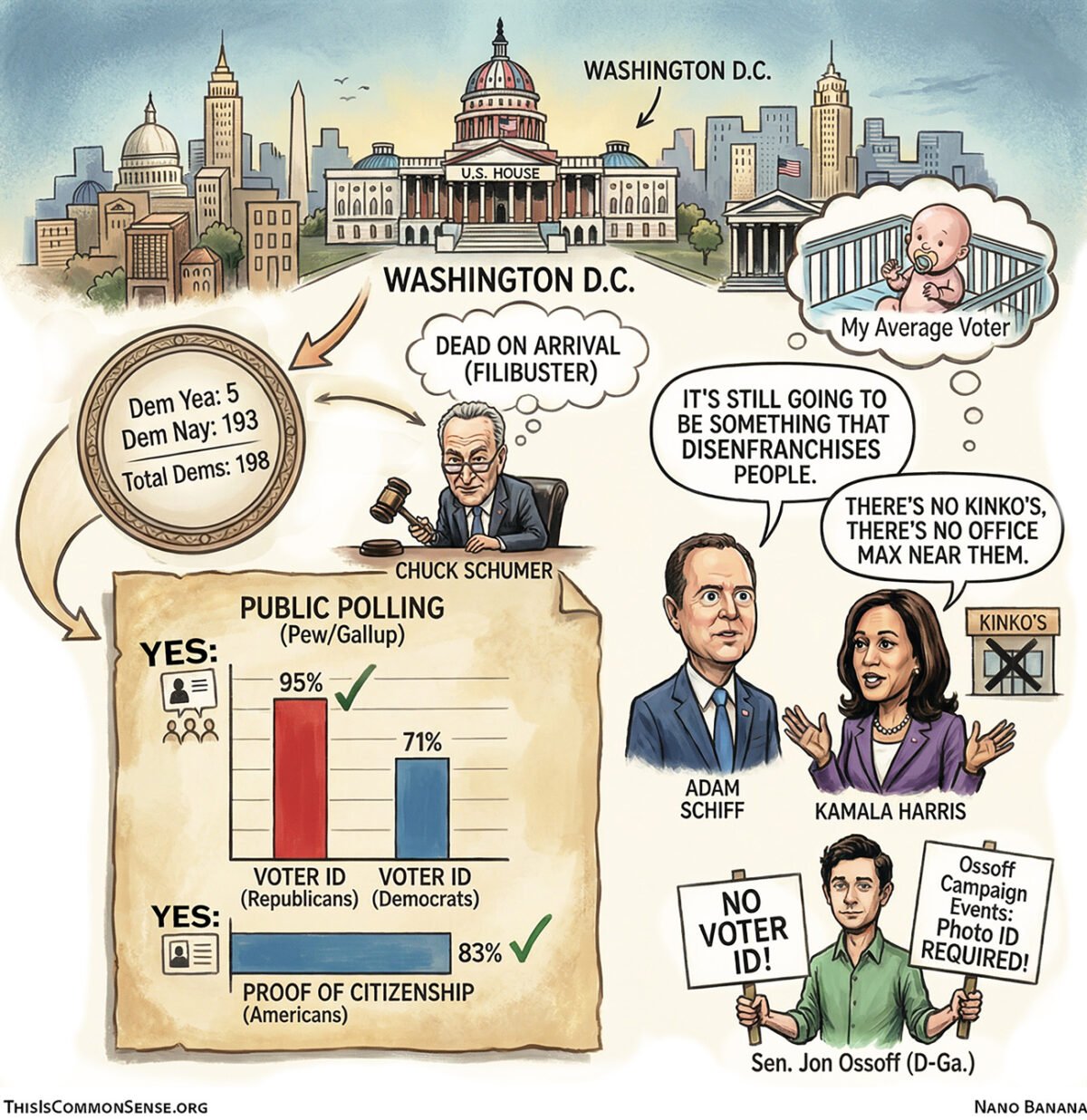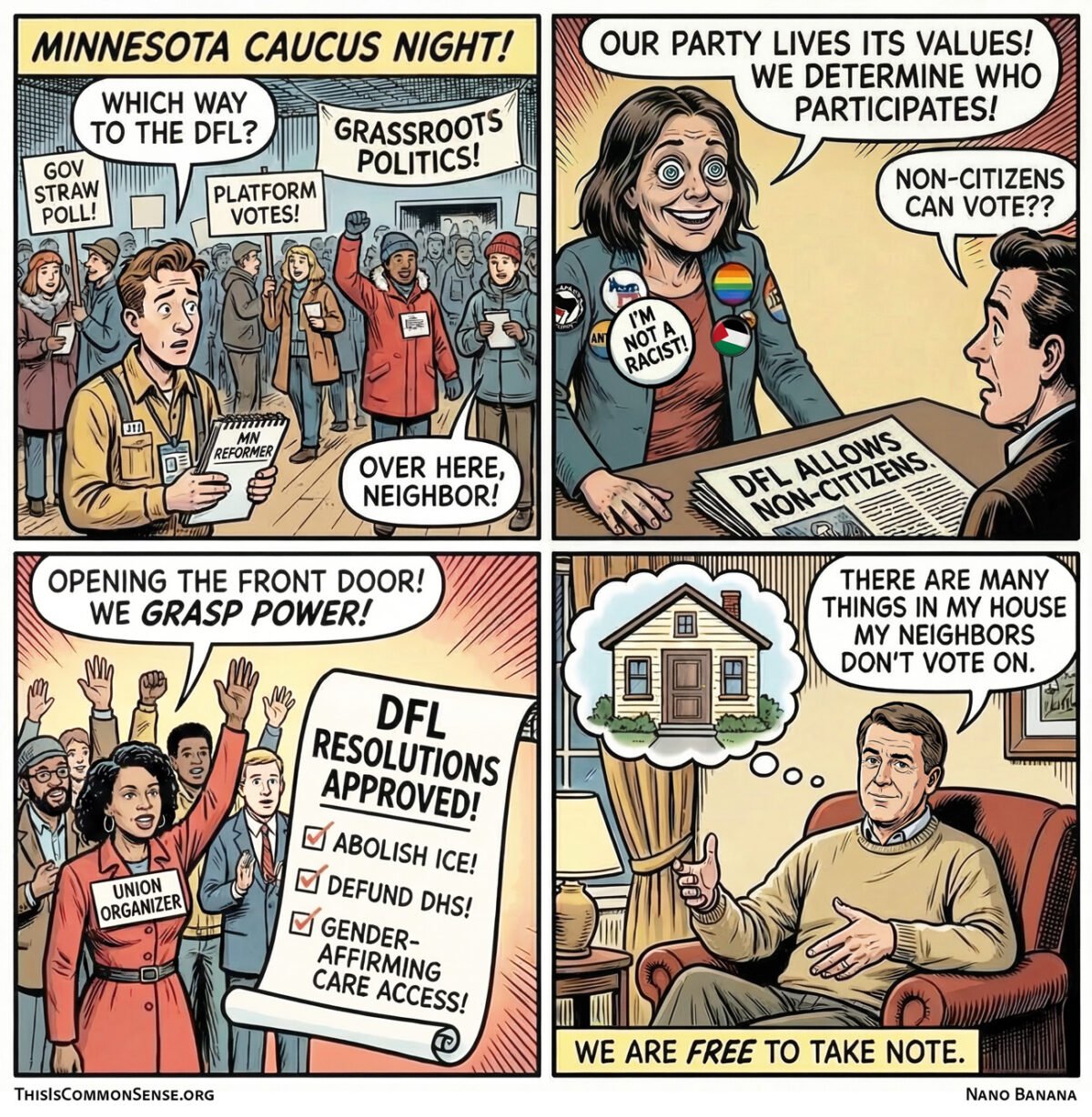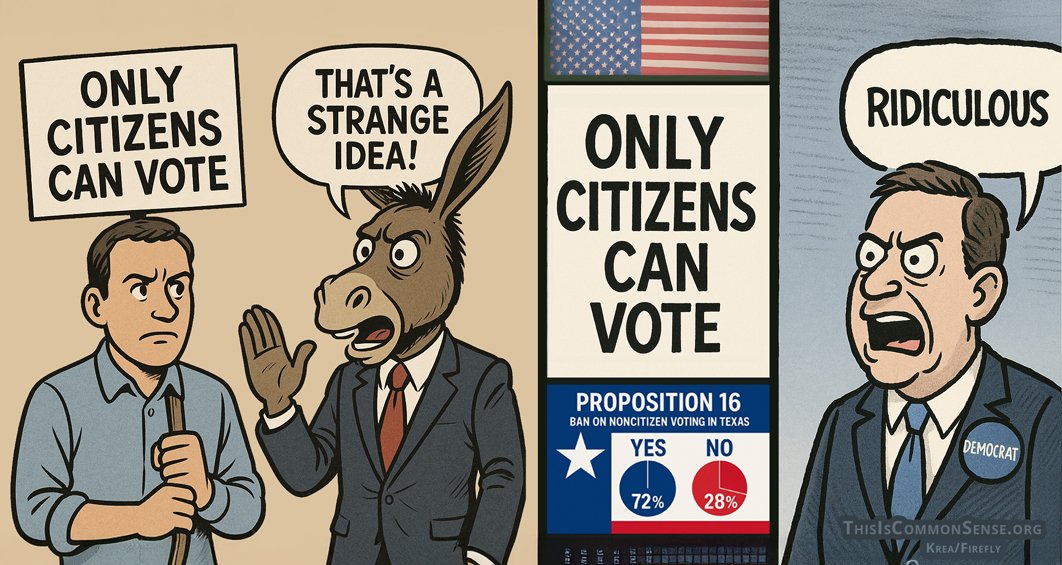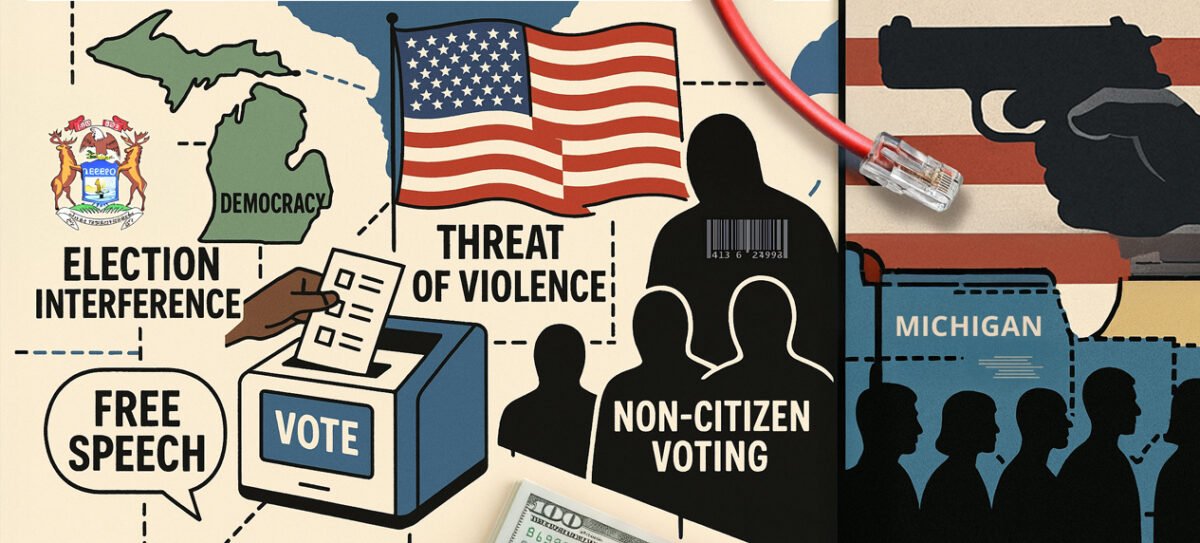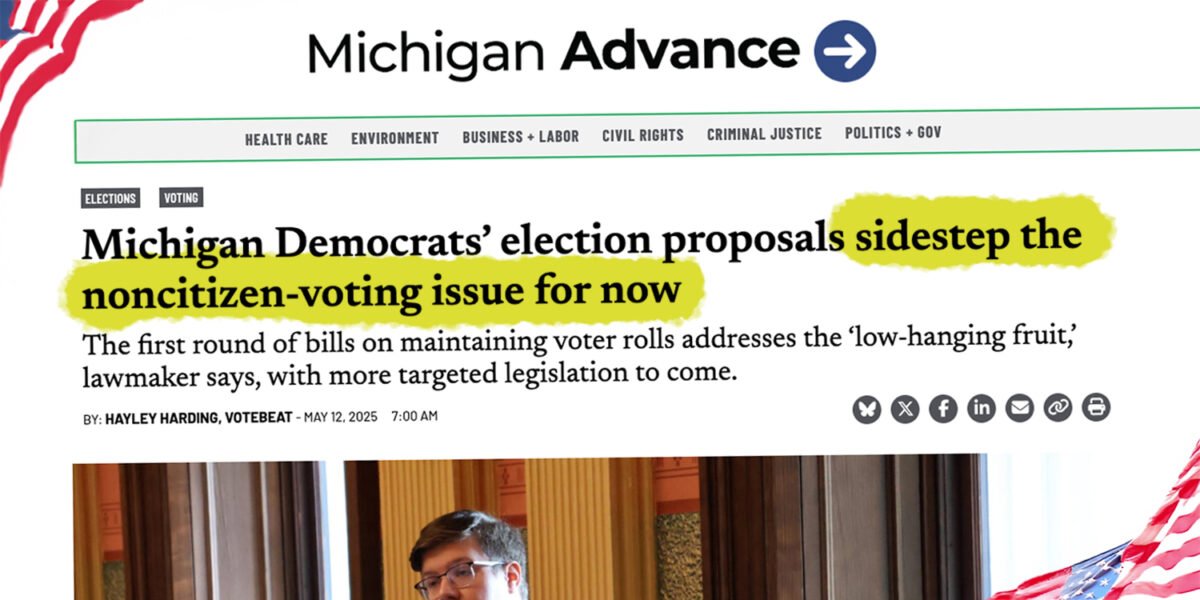The SAVE America Act, formerly known as the Safeguard American Voter Eligibility (SAVE) Act, may get a vote this week on the floor of the U.S. House.
I like the bill’s two key provisions: Voter ID and proof of citizenship.
But Senate Minority Leader Chuck Schumer (D‑NY) has already announced the bill “dead on arrival,” even with House passage, as Democrats will filibuster to block a Senate vote.
“According to an August 2025 Pew Poll, 95 percent of Republicans and 71 percent of Democrats favor voter ID,” reported CNBC. “A 2024 Gallup poll found that 84 percent of Americans support voter ID and 83 percent support proof of citizenship to register to vote.”
Sunday, on ABC’s This Week with[out] George Stephanopoulos, co-anchor Jonathan Karl detailed the public polling before asking Sen. Adam Schiff (D‑Calif.): “What about the idea of voter I.D., a photo I.D. being required to vote?”
“It’s still going to be something that disenfranchises people,” replied Schiff, those “that don’t have the proper real I.D., driver’s license I.D., that don’t have the I.D. necessary to vote, even though they are citizens. This is another way to simply try to suppress the vote.”
Sen. Jon Ossoff (D‑Ga.) opposes voter ID, too … yet he requires government-issued photo identification to attend his campaign events.
Years back, then-Vice-President Kamala Harris warned that “in some people’s mind [voter ID] means you’re gonna have to Xerox or photocopy your ID to send it in to prove you are who you are. Well, there’re a whole lot of people, especially people who live in rural communities, who don’t — there’s no Kinko’s, there’s no Office Max near them. Of course, people have to prove who they are. But not in a way that makes it almost impossible for them to prove who they are.”
Seems Democrat leaders cannot imagine any possible system of checking ID or determining citizenship. Even though the rest of the democratic world does it without a hitch.
This is Common Sense. I’m Paul Jacob.
* The key action is in the states, as this headline in Michigan last week attests: “While Washington Argues Over Proof-of-Citizenship Voting Rules, Michigan Grabs the Wheel.”
Illustration created with Nano Banana
See all recent commentary
(simplified and organized)
See recent popular posts
